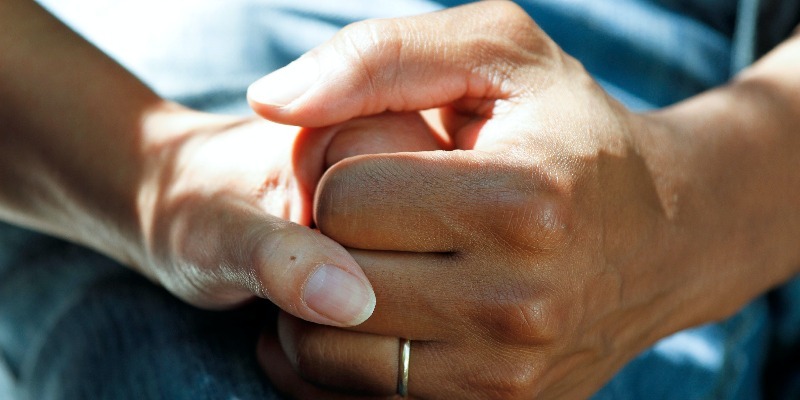Death, change and the future post-pandemic

Author: John Gladwin
John Gladwin was Bishop of Guildford (1994-2004) and Bishop of Chelmsford (2004-2009). Previously he had been Provost of Sheffield Cathedral and Secretary of the Church of England Board for Social Responsibility. |
The Prime Minister’s alleged remark last year that it would be better to have bodies piled in the streets than to have to endure another lockdown hit hard on families who have lost loved ones to Covid. In a whole variety of ways death has been in the headlines. Whether it is families unable to say a decent farewell to loved ones, Funeral Directors traumatised by an inability to deliver a caring service to grieving people or those on the front line in the NHS having to witness people dying alone, it has been hard.
We have been anxious, sometimes frightened and resigned to forces which seem beyond our control. Day after day we have been battered by the message that death is stalking us in our neighbours, our families and local communities. Now the pressure seems to be easing the time has come to tend these wounds and reflect on the changes that have come upon us.
Death is both our enemy and our friend. Our enemy has little respect for our differences of age, culture and religious belief. Every time I tend my late wife’s grave nearby I see the grave of a tiny baby deeply loved by young parents traumatised by the loss. Grief and loss hit us both.
Death is also our friend. It brings to an end suffering and pain and life that has no future. Hard though it is for loved ones and health and care professionals we have been faced with the challenge to enable people to die loved and supported on this final journey. To see people die both at peace and peacefully is a huge comfort to those of us left behind. The Hospice movement has been helping people terminally ill to die in comfort and peace. Helping people die and supporting family and friends through the final journey of death is the key to the significance of this movement.
What is true for us as individual people is true also for our culture, social expectation and provision. The Pandemic has been a trauma for our health care and social care professionals and for the services they are part of. Can there be any doubt but that the NHS and Care Services have both been shaken to the foundations and changed beyond any return to the past? It is often the case that those of us most in need of help receive the worst of public services. As a result people end up dependent on expensive and poor services.
In the 60’s and 70’s we had to deinstitutionalise mental health provision. That circle of such institutions round the M25 on the edge of London one by one were closed and residents provided for in the community. Now we have to do it for the frail elderly and those with dementia. The easy, expensive and dehumanising solution is to put people into permanent care. The harder, cheaper and more human way is to provide the structures of support for people in their own homes and for those who are providing care at home.
The same is true for health provision. It is there rooted in the local community enabling people in all conditions of life to be responsible with support for their own lives and futures. Independence is promoted by interdependence. Dependence is resisted by interdependence. Many are the examples from the Pandemic story of the bottom up provision made by people with vision to provide support and flourishing for people at times of crisis and need.
Failure to meet this challenge will inevitably lead to the continued collapse of our public health services and of our care services. Death might just be the gateway to fresh life! That is why churches must be part of this bottom-up movement towards a more diverse and human community in which we all look to accepting our responsibility for the health and well-being of all.
**************************************
Peter Hennessy in his book “Winds of Change – Britain in the Early Sixties”. (Penguin 2019) describing the ‘what’s wrong’ critique of that time includes:-
“An ‘establishment’ dominated by Oxbridge males steeped in the classics and humanities…and what the Cabinet Office civil servant Clive Priestley would later call the amateurish ‘good chap’ theory of government…”
Who would want to say that either in the political or ecclesiastical establishment we have entirely escaped the challenge from the past.
The dynamic of the church lies in the mystery of the work of God in the people who call upon God’s name. Likewise the energy that will shape our common future will come from the bottom up. Structures of power need both to reflect this truth and shift the whole way we think about our common life.
That opens the door to another consequence of this crisis. We need to name and articulate our shared values and visions. If the struggles for power and the greed and individualism that sometimes drives us all is to be not only contained but resisted we must think more often and more deeply about the foundation stones of morality and faith for an inclusive and open future.
Author/copyright permissions
Reproduced with permission of the author.
Photo Credit: National Cancer Institute |